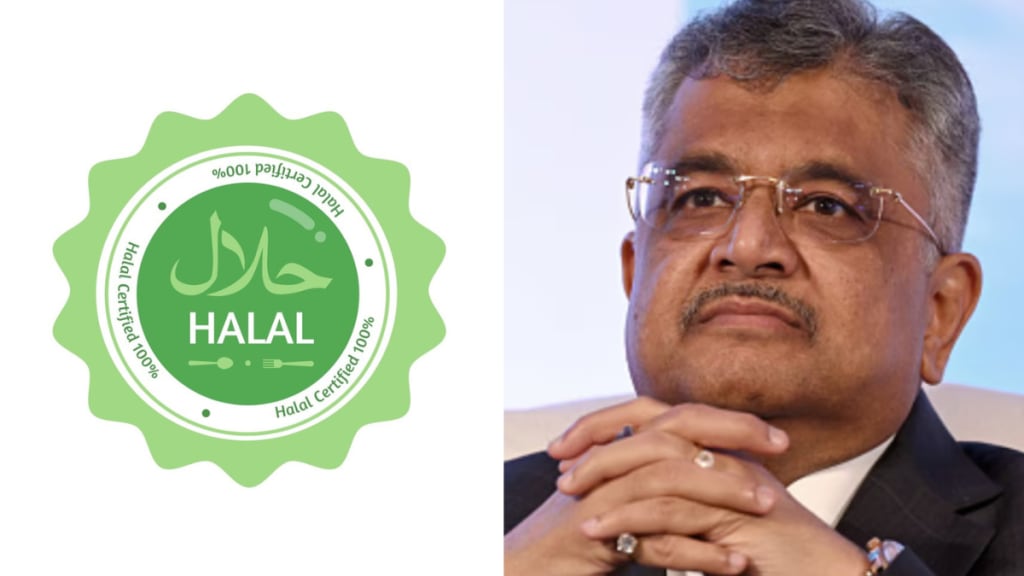The rise of halal certification for non-food products is stirring up discussions, with implications for marketing strategies, pricing, and consumer choice. Solicitor General Tushar Mehta raised concerns in the Supreme Court on January 20, 2025, questioning why non-Muslim consumers should pay more for products just because they carry a halal certification, especially when these products aren’t food-related.
What is halal certification?
Halal is an Arabic term meaning ‘permissible’ according to Islamic law. It’s most commonly associated with food, specifically meat, where halal certification ensures that the product complies with Islamic dietary laws. However, halal certification has recently expanded to include a wide range of non-food products like cement, iron bars, water bottles, and even wheat flour (atta) and chickpea flour (besan). This shift has raised questions about the growing influence of halal certification on consumer markets beyond food, particularly in sectors where it was not traditionally relevant.
The market implications
In his submission before the court, Mehta highlighted how businesses are capitalising on halal certification across various product categories. He expressed surprise over the certification of non-consumable items, noting that even products like cement and iron bars are now being marketed as halal-certified. For many brands, obtaining a halal certification allows them to tap into a niche, yet significant, market segment: Muslim consumers who follow dietary and lifestyle regulations outlined by Islamic law.
However, the certification comes with a cost. Mehta raised the issue of halal-certified products being priced higher, potentially placing an unnecessary burden on non-Muslim consumers who are not purchasing these products for religious reasons. From a marketing standpoint, this could affect the overall consumer perception of product value, especially in markets where consumers are sensitive to price differences or where religious certification is not a priority.
Halal as a lifestyle choice
Halal certification is no longer just about food. The Central government’s policy defines halal as not only a food-related concept but also as a broader lifestyle choice. This means that products like personal care items, clothing, and even household products could also carry a halal certification. The expansion into non-food categories is driven by businesses seeking to cater to the growing demand for products that align with Islamic principles.
For brands, this presents a unique marketing opportunity. By labeling their products as halal-certified, businesses can position themselves as inclusive and socially responsible, appealing to a consumer base that values religiously compliant products. This trend is particularly evident in markets with large Muslim populations, where halal certification is a key factor in purchase decisions.
The Uttar Pradesh Government’s ban
The issue gained significant attention when the Uttar Pradesh government imposed a ban on the sale, storage, and distribution of halal-certified food products within the state in November 2024. The ban followed allegations that some halal-certifying agencies were issuing forged certificates. The move has sparked a constitutional challenge, but it has also underscored the growing importance of halal certification in the marketplace.
While the ban specifically targets food products, it’s part of a larger conversation about the role of certification in product pricing and consumer choice. The debate has reached the Supreme Court, with the government defending its stance and petitioners arguing that halal certification is a matter of choice and not a mandatory requirement.
What’s next?
As the case continues, the broader marketing implications of halal certification are becoming clearer. From a brand’s perspective, halal certification is a tool to tap into a specific, loyal consumer base. But businesses must carefully consider how this affects pricing and whether non-Muslim consumers might feel priced out of the market.
The Supreme Court will continue deliberating on the case, and the outcome may have significant implications for the future of halal certification across various industries. Whether businesses can continue to expand their product offerings to include non-food items with halal certification remains to be seen, as does the potential impact on consumer behaviour and market trends.
For now, the growing trend of halal certification in non-food products is one to watch closely as brands navigate the balance between niche marketing and mass appeal.
